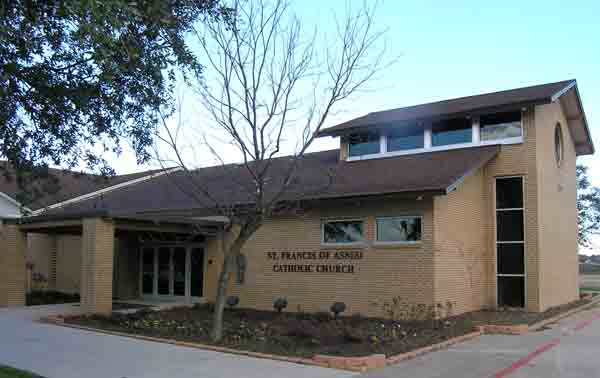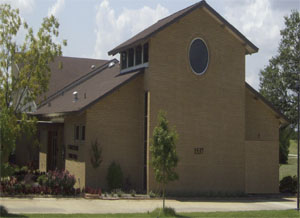
Donations
"We are keeping you in our prayers for your health and well being. Mass intentions and prayers for those who are sick, listed in the bulletin are being offered by Fr. Sabando in his celebration of private masses. In order to keep operational expenses paid during the cancellation of masses, you may also mail your Sunday offerings to St. Francis Catholic Parish, 1537 Rogers Ave., Lancaster, TX 75134 or donate on line below:
Online Donations
You can now make both one time
and recurring donation securely
on line. Click on the logo below for
more details.
Parish Office Hours
Monday- 9:00 AM - 4 PM
Tuesday– 9:00 AM - 4 PM
Wednesday 9:00 AM - 4 PM
Thursday 9:00 AM - 4 PM
Friday 9:00 AM - 4 PM
Financials for 2020
Click on the documents below to view the 2024 Financials
“In the beginning was the Word, and the Word was with God, and the Word was God. He was in the beginning with God. All things came to be through him, and without him nothing came to be. What came to be through him was life. And this life was the light of the human race; The light shines in the darkness, and the darkness has not overcome it”.
- John 1:1-5
Lectors are called to proclaim the Word of God at Mass. A lector is a storyteller, called to speak the words of salvation. This ministry requires above all a strong belief in and devotion to the truth proclaimed in the Scripture. Lectors need a loud, clear voice and should be comfortable speaking to large groups.
Guidelines for Lectors
Before Mass
- Arrive at least 20 minutes early. If unavailable or unable to serve, please find a substitute.
- Pick up a lector cross in Sacristy 2. Use during entire Mass and return before leaving the church.
- Verify the Lectionary is at the ambo; if not, ask the sacristan for the book. Silently, practice reading your assigned Scripture from the Lectionary.
- Greet parishioners as they arrive at church.
- Immediately before Mass, all ministries pray near the main sacristy and line up for the entrance procession. Follow assigned order of procession: Altar servers, (2) EMs, lectors 1 and 2, deacon, and celebrant.
During Mass
- Do not bow or genuflect as you approach the altar, wait and do it as a group with the priest.
- When the entrance procession aligns along the first step of the sanctuary, lectors should be standing closest to the celebrant and deacon. Genuflect with the celebrant, unless you have a physical impediment.
- If no deacon is present, the first lector places the Book of the Gospels on the altar before Mass begins. Only the deacon will be allowed to carry the book in procession to the altar.
- When it is time to read, approach the area in front of the ambo, stop, slightly bow your head to the altar, and continue to the ambo. Adjust microphone and Lectionary. The first lector must wait for the commentator to finish reading. Look at the faithful and begin to read, “A reading from ....” After reading, pause and then say “The Word of the Lord.”
- To return to your seat after reading, approach the area in front of the ambo, stop, slightly bow your head to the altar, and walk to your seat. You should bow in unison with the cantor.
- If no deacon is present, the first lector approaches the ambo after the Profession of Faith and waits for celebrant to conclude with the introduction to the Prayer of the Faithful to begin to read the Prayer of the Faithful. Follow the previous procedure for exiting the ambo, but with no cantor.
After Mass
- Lectors line up along the first step of the sanctuary for the exit procession and exit in the same order as in the entrance procession. Lectors should remain in the narthex with the celebrant to receive parishioners as they exit the nave.
- Return lector cross to Sacristy 2.
Lector Procedures
- Lectors dress and groom appropriately to show importance of the ministry. Casual clothes and sloppy grooming can be seen as a lack of dignity or respect for the ministry. Men should wear dress pants and shirt. Women should wear a dress, skirt and blouse, or pant suit ensemble.
- Lectors must conduct their service with reverence and respect to apostolic tradition and to the faithful. Lectors proclaim the word of the Lord at Mass.
- Lectors should practice reading aloud their assigned Scripture before the day they are assigned to read. Lectors should refer to the Workbook for Lectors the parish provides. The workbook contains proper pronunciation of special words, emotional delivery method, and words in bold to be emphasized.
- How you read determines how the message is received by the faithful. A good reading will guide listeners to the topic of the homily, while a reading with perfect pronunciation and pauses may suffer from incorrect intonation and stress which potentially deviates from the homily. Look at examples a, b, and c. The word in bold is emphasized.
- You shall love your neighbor. This states who we have to love. Emphasis is on love of neighbor.
- You shall love your neighbor. This states who is responsible for the love of neighbor. Emphasis is on responsibility.
- You shall love your neighbor. This declares the obligation of the person (i.e., a mandate). Emphasis is on obligation to love.
Glossary
Intonation—the rising and falling pattern of speech
Stress—special emphasis placed on a word
Current Weekly Bulletin: Click Picture
Helpful Links
Mass Links
Breakfast Schedule
Coming in September!
Stay Connected!
FORMED On Demand is a revolutionary online platform providing access to the best Catholic audio talks, movies, e-books, and video-based studies from trusted
Click on the logo above to enjoy FORMED.
Helpful Links
Click on the following lines for helpful information:
Bishops invitation to listen to masses:
Information on Fraud and scams:
Domestic violence resources with Diocese of Dallas and Catholic Charities:
https://www.cathdal.org/DV_Postcard_CC%5b1%5d.pdf
https://www.cathdal.org/Diocesan_Domestic_Violence_Brochure.pdf







